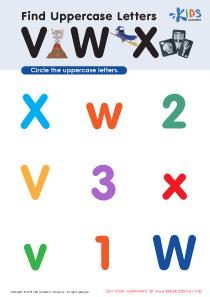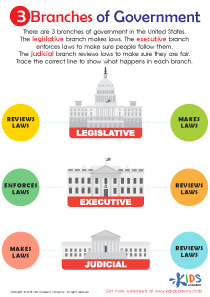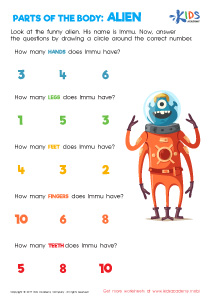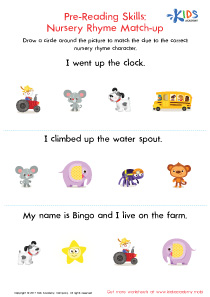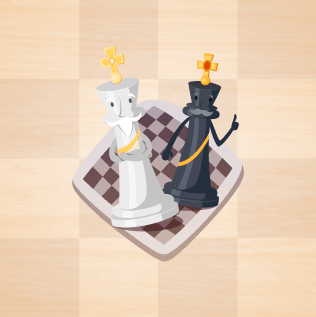Chess Lessons | Purpose of the Game for Ages 5-6
9 results
Discover the joy of learning with our interactive lessons designed specifically for children aged 5-6 on the "Purpose of the Game." Through a captivating mix of educational videos, engaging worksheets, and stimulating assessment quizzes, we aim to instill in young learners an understanding of the various objectives and values games can teach. Each lesson is thoughtfully crafted to foster creativity, teamwork, and problem-solving skills, making learning both fun and meaningful. Dive into our comprehensive program and watch your child develop a deeper appreciation for the Purpose of the Game, laying the foundation for a lifetime of enthusiastic and informed play.
Unraveling the Fun: How "Purpose of the Game for Ages 5-6" Benefits Children's Studies
In the vibrant world of childhood education, every parent and educator aspires to blend learning with fun seamlessly. This ambition becomes a vivid reality with the "Purpose of the Game for Ages 5-6," a meticulously designed program that caters to the developmental needs of young learners. Through a delightful concoction of interactive worksheets, educational videos, and assessment quizzes, this program does more than entertain; it lays a strong foundation for future academic pursuits. Here’s how.
Fostering Cognitive Development
The early years of a child’s life are crucial for cognitive development. The "Purpose of the Game for Ages 5-6" taps into this developmental phase by challenging children with puzzles and problems that stimulate critical thinking and problem-solving skills. As children navigate through the games, they are not merely playing; they are learning to recognize patterns, understand sequences, and make connections. These cognitive exercises are instrumental in sharpening young minds, setting a robust base for complex problem-solving skills required in their studies and beyond.
Enhancing Attention and Concentration
With the irresistible pull of digital distractions, cultivating a child’s ability to focus is more crucial than ever. The interactive nature of the "Purpose of the Game for Ages 5-6" ensures that children remain engaged and absorbed in the tasks at hand. Whether it's solving a puzzle on an interactive worksheet, following a storyline in an educational video, or answering questions in an assessment quiz, children learn to concentrate on the task at hand. This enhanced attention span is invaluable in a classroom setting, enabling children to absorb and retain information more effectively.
Building Confidence and Independence
A unique aspect of the "Purpose of the Game for Ages 5-6" is its ability to foster independence and build confidence in young learners. By completing tasks, solving problems, and overcoming challenges independently, children experience a sense of accomplishment. This not only boosts their self-esteem but also encourages them to take initiative and approach new challenges with confidence. Such traits are indispensable in academic settings, where students are often required to work independently or navigate new learning environments confidently.
Promoting Language and Math Skills
Language and math are fundamental pillars of early education, and the "Purpose of the Game for Ages 5-6" addresses these areas head-on. Through engaging storylines in the videos and thought-provoking questions in the worksheets and quizzes, children are exposed to new vocabulary and concepts. Additionally, many of the games are designed to introduce basic math skills such as counting, measurement, and recognition of shapes. This early exposure helps children grasp these essential concepts more quickly, giving them a head start in their academic journey.
Cultivating Social and Emotional Skills
Lastly, the program is not just about academic skills; it also focuses on social and emotional learning. By working through the games, children learn about patience, perseverance, and teamwork. These lessons are crucial for developing well-rounded individuals who can navigate both the academic world and personal relationships with ease.
In conclusion, the "Purpose of the Game for Ages 5-6" is more than just a set of activities; it’s a comprehensive learning experience that equips children with the skills needed for academic success and beyond. By intertwining the joy of play with the rigors of learning, it ensures that children are not just prepared for school but for life itself.
